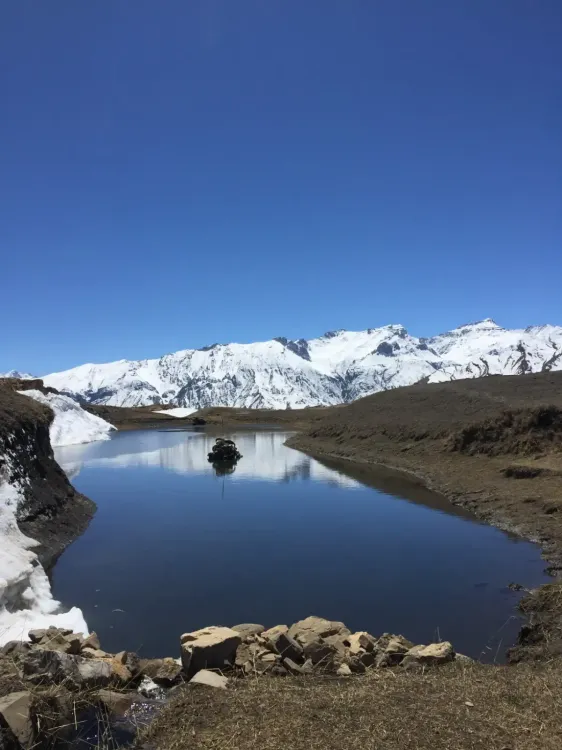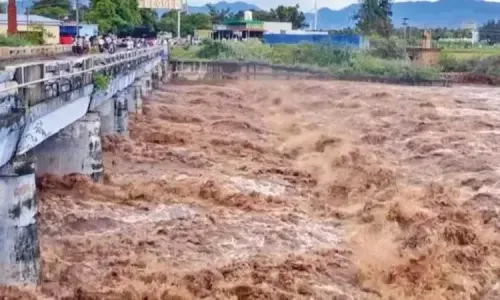What Reforms Are Needed in Disaster Governance and Climate Preparedness Across the Himalayas?

Synopsis
Key Takeaways
- Over 30 organizations have united to call for reforms.
- They demand independent reviews of mega projects for ecological risks.
- The campaign emphasizes the need for increased disaster response funding.
- Recent disasters highlight significant governance failures in the region.
- A coordinated national strategy is essential for climate resilience.
Shimla, Oct 19 (NationPress) A coalition of over 30 organizations and 40 individuals from the Himalayan region has presented a unified appeal to the high-powered committee of the National Disaster Management Authority (NDMA), urging immediate reforms in disaster governance and climate preparedness.
The coalition has also insisted that all ongoing and proposed mega projects undergo an independent and scientific review to evaluate their cumulative ecological and disaster risks.
This joint statement, issued under the People For Himalaya campaign, follows the devastating monsoon disasters that have revealed the significant ecological vulnerability and governance failures in the mountain states.
The statement highlights that the 2025 monsoon season has inflicted widespread destruction through floods, landslides, glacial lake outburst floods, and cloudbursts across regions including Uttarakhand, Himachal Pradesh, Ladakh, Jammu and Kashmir, the Northeast, and Darjeeling.
These calamities have led to severe loss of life, devastation of homes, and collapse of infrastructure, while exposing the cumulative impacts of unscientific development, environmental degradation, and decades of policy neglect concerning mountain-specific vulnerabilities.
The signatories contend that the scale and frequency of such incidents necessitate a strong and coordinated response from both national and state authorities.
The People For Himalaya campaign has called on the NDMA to promptly enhance post-disaster needs assessment and financial aid to the affected states. It emphasizes that ongoing post-disaster needs assessment (PDNA) studies in states like Uttarakhand and Himachal Pradesh should be expedited to facilitate fair and evidence-based rehabilitation and reconstruction.
In regions where such assessments are yet to commence, such as Darjeeling and other parts of Northern Bengal, the submission urges the central government to gather expert teams to conduct detailed studies of the social, environmental, and livelihood impacts of disasters.
The statement calls for a significant boost in allocations to the State Disaster Response Fund (SDRF) to address the complex and escalating risks in the Himalayas, and recommends creating a dedicated disaster mitigation and climate adaptation fund for mountain states, ensuring mechanisms for transparency and public accountability.
A central concern raised by the submission is the need to address the impact of large-scale infrastructure projects in increasing disaster vulnerability.
The submission points out that regions with extensive construction of highways, hydropower projects, tunnels, and railways have faced the most severe consequences, as these projects disrupt riverbeds, destabilize slopes, and lead to deforestation.
The campaign demands that all ongoing and proposed mega projects undergo an independent and scientific review to assess their cumulative ecological and disaster risks.
It also calls for a moratorium on projects that heighten exposure and vulnerability in fragile terrains, stricter regulation of tourism and commercial infrastructure, and the incorporation of climate change projections in all planning processes.
This joint submission has received backing from organizations and individuals both within India and internationally, including Climate Front (Jammu), Citizens for Green Doon (Uttarakhand), Social Development for Communities Foundation (Uttarakhand), Joshimath Bachao Sangarsh Samiti (Uttarakhand), Himdhara Collective (Himachal Pradesh), Himalaya Niti Abhiyan (Himachal Pradesh), The Shimla Collective (Himachal Pradesh), Council for Democratic Civic Engagement (Sikkim), Youth For Himalaya, Indigenous Perspectives (Imphal), Uttarakhand Lok Vahini (Uttarakhand), National Alliance of People's Movements (NAPM), and MAUSAM Network.









